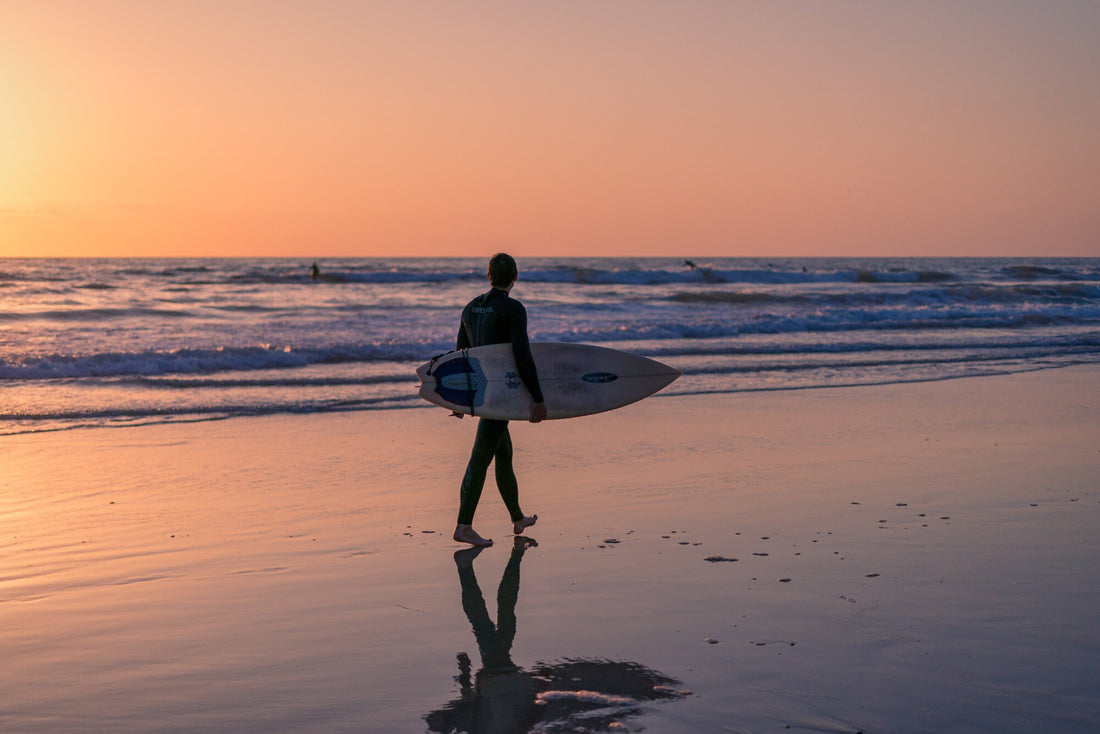Do you ever look out at the ocean and wonder about its great power? The ocean is the largest ecosystem on Earth. It provides half of the oxygen we breathe, feeds more than 500 million people, and contains 80% of the world's lifeforms.
The ocean also regulates our climate and helps keep us safe from natural disasters like tsunamis. In short: if we don't keep the ocean clean, we harm ourselves.
Here's everything you need to know about how to save the ocean.
The Ocean is Where Life Began
We all know that the ocean is where life began millions of years ago.
The ocean is a critical part of the Earth’s ecosystem. In fact, it covers 71% of our planet. However, this beautiful ecosystem has been under threat for decades due to overfishing and pollution as the world's population ballooned.
If left unchecked, climate change could cause irreparable damage to marine environments as well as coastal communities that rely on them for food and income. We all need to do our part to clean up the ocean and protect it.
The Ocean Feeds the World's Population
You may not think of the ocean as a source of food, but it is. The oceans are the source of all life on Earth and provide most of our food. Half of the oxygen we breathe comes from phytoplankton in the ocean's surface waters.
The oceans also produce half of our energy needs, as well as providing most of the world's drinking water and fishing grounds.
The Ocean Provides Half of the Oxygen We Breathe
The ocean absorbs more carbon dioxide than any other reservoir on Earth, which means it's an important part of the natural carbon cycle. Carbon is released into the atmosphere by volcanoes and human activities such as burning fossil fuels and deforestation.
When this happens, oxygen is converted into carbon dioxide. The ocean then absorbs some of this excess CO2 and releases oxygen back into our atmosphere, leaving both in balance with each other.
The ocean stores about half of all carbon currently on Earth at any given time—it's one of nature’s most massive regulators for atmospheric CO2 levels! That means that if you want to breathe clean air, you need clean water as well!
In addition to its role in regulating carbon dioxide levels, the ocean is also responsible for producing a large amount of oxygen. About 40 percent of all oxygen comes from marine plants and animals. They are responsible for moving the oxygen into the atmosphere so that we can breathe it!
The Ocean Helps Regulate Our Climate
The oceans absorb heat and carbon dioxide and help keep the Earth's temperature stable. The ocean is also a major source of oxygen for Earth's atmosphere, which makes it possible to breathe.
In addition, the ocean helps keep our climate stable by moderating temperatures on land. As water heats up, it releases some of its heat into the air above; this process cools down both air and water below.
The ocean also helps regulate other climate-moderating processes, such as rain and snowfall patterns and wind currents. When water evaporates from the ocean surface to form clouds, that moisture gets carried by wind currents to land, where it falls back down as rain or snow. This cycle continues indefinitely.
The Ocean is a Vast Economic Resource
The ocean provides jobs, food, and energy for the entire planet. The fishing industry alone employs nearly 60 million people worldwide generating nearly $250 billion in sales annually. Ocean-based tourism accounts for another $1 trillion each year.
In addition to these direct sources of income, hundreds of millions more are employed indirectly by industries that rely on healthy oceans for their success.
This includes the shipping industry, tourism operators, and coastal communities. They all rely on clean beaches or offshore drilling platforms to generate revenue from visitors and workers alike.
Cleaning up pollution from oil spills or waste from commercial shipping will help ensure safer working conditions. At the same time, it will preserve marine ecosystems that support vital economic activity around our planet's seas.
The ocean is a source of food for many countries. Nearly half of all the seafood consumed worldwide comes from fish farms and fisheries located in coastal areas around the globe.
As our demand for seafood grows, these ecosystems will become increasingly important sources of protein and livelihoods for people living along coastlines across the world in the decades to come. It's important to protect them so that they can continue providing sustenance.
Humans Harm Life on Earth When They Fail To Keep the Ocean Clean
The ocean is a global resource and a shared resource for all of humanity, not just ocean lovers. It is also home to hundreds of thousands of species. The ocean is a resource for the future, providing us with food and jobs in the present.
There's no doubt about it: we need to protect the ocean if we want to continue living on this planet.
Humans tend to believe that we are the only ones who matter. This mindset causes us to forget or ignore what other forms of life need to survive, which can have devastating consequences on our planet.
If we do not keep our ocean clean, we will be taking away from future generations of humans.
To help with this cause, be sure to donate to our Help the Manatee charity today.

